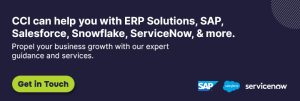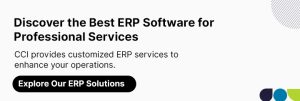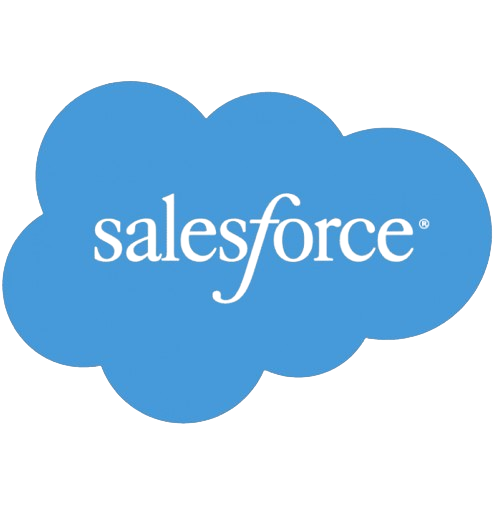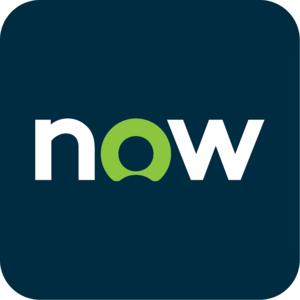Salesforce Agentforce Pricing Structure and Implementation Cost Details [2025]
Updated on February 19, 2026
Salesforce Agentforce is redefining how businesses approach automation. These AI-powered autonomous agents can independently manage customer conversations, qualify leads, support internal teams, and execute routine tasks, all without manual intervention. Designed to offload repetitive work from human teams, Agentforce marks a bold step forward in the enterprise adoption of AI.
As we move deeper into 2025, businesses face mounting pressure to deliver faster, more personalized experiences while keeping costs in check. Agentforce rises to that challenge, offering scalable, cost-effective automation revenue-driving outcomes.
What is Salesforce Agentforce?
Formerly known as Einstein Copilot, Salesforce Agentforce is the next evolution in AI automation. It’s designed to empower autonomous agents who can understand the business context, engage users in natural conversations, and complete tasks from start to finish, all without constant human supervision.
Agentforce runs on Salesforce’s new Atlas Reasoning Engine, giving it the ability to:
- Handle Conversations: Engage with customers, employees, or partners in real time through natural language.
- Make Decisions Autonomously: Take context into account to route queries, prioritize tasks, or trigger workflows.
- Execute Tasks: Perform common actions such as lead qualification, ticket resolution, internal knowledge retrieval, and more.
>> Related Article: Agentforce vs. Einstein AI: Strengths, Weaknesses, and Use Cases
Salesforce’s New Pricing Philosophy
With Agentforce, Salesforce has transitioned from traditional seat-based licensing to a conversation-based pricing model, where businesses pay based on agent interactions.
This shift aligns with Salesforce’s broader move towards outcome-based pricing, ensuring costs are directly linked to actual usage. This approach facilitates easier piloting of AI solutions without substantial initial investments, allowing businesses to scale at their own pace.
Salesforce Agentforce Pricing Structure in 2025
1. Per Conversation Fee
At the heart of Agentforce’s pricing is a simple structure:
- $2 per conversation with an autonomous agent—regardless of whether the user is a customer, employee, or partner.
- Volume discounts are available for organizations with high engagement needs.
- No additional licensing fees are required to get started, which lowers the barrier for pilot programs or proof-of-concept deployments.
2. Einstein AI Usage Costs
Agentforce uses Einstein AI to generate replies during conversations. These AI-generated messages are priced based on complexity and word count:
- Costs are based on Einstein Requests, measured in 1,500-word units. For example, 15,000 words using Salesforce’s model consumes 100 Einstein Requests, costing approximately $2.00–$3.00 per 1,000–1,500 words, depending on complexity.
3. Subscription Requirements
Businesses need to use Agentforce on Salesforce Enterprise Edition or higher. While Agentforce features may be accessible via upgraded tiers, some organizations may also benefit from:
- Salesforce Basic, Professional, or Enterprise cloud upgrades, depending on their use case
- A free Salesforce Foundation upgrade, which may unlock limited Agentforce functionality for experimentation or testing
>> Related Post: Hire Salesforce Experience Cloud Consultant: Uses, Benefits, & Cost [2025]
Factors Influencing Agentforce Implementation Cost in 2025
While the base pricing for Salesforce Agentforce is transparent and usage-based, total implementation costs can vary widely depending on how your organization deploys the technology. Here are the core factors that influence the cost of adopting and scaling Agentforce in 2025:
1. Number of Agents/Users
Each autonomous agent, whether a Sales Coach, Support Assistant, or Partner Success Bot, adds to your overall usage volume. There are no strict per-user license fees, but keep in mind:
- More agents mean more conversations
- Higher usage means higher AI response costs
For example, a company using Agentforce across customer service and internal HR support will naturally see broader interactions, translating into higher costs and greater operational efficiency.
2. Customization & Integration
Out-of-the-box functionality may work for basic needs, but advanced use cases often require customization, such as:
- Tailoring workflows specific to your sales or support process
- Integrating Agentforce with third-party apps (e.g., Zendesk, Slack, custom APIs)
- Building complex automation rules or decision logic
These tasks often require developer hours or Salesforce-certified consultants, which adds to implementation costs. For businesses planning robust integrations, it’s wise to budget for upfront customization work.
3. Training and Onboarding
Agentforce is powerful, but only if your teams know how to use it. Salesforce provides self-service tools like Agent Builder and Prompt Builder, but organizations may still need:
- Employee onboarding sessions
- Custom training programs for different departments
- Assistance from Salesforce’s professional services team
4. Data Cloud Costs
Agentforce relies on Salesforce Data Cloud to store and process the context used in conversations. While most Enterprise subscriptions include up to 1 petabyte (PB) of storage, costs can increase if your use case involves:
- Large-scale data ingestion from other platforms
- Data transformation pipelines for real-time analytics
- Custom dashboards and AI-driven insights that process high data volumes
5. Subscription Plan
Agentforce is available to businesses on Salesforce’s Enterprise Edition or higher. The features and functionality vary based on the plan, such as Basic, Professional, or Enterprise tiers. Businesses can start with the Salesforce Foundations upgrade, which provides Agentforce access and other core Salesforce Clouds. From there, organizations can scale and expand based on their specific needs.
6. Usage-Based Pricing
Agentforce operates on a conversation-based pricing model, which is more flexible and aligned with usage compared to traditional licensing structures:
- Cost per Conversation: The base rate starts at $2 per conversation. Overages are charged if you exceed pre-purchased conversation limits. Volume discounts may apply for higher usage.
- Einstein AI Interactions: AI-powered responses incur additional costs based on word count and complexity. On average, businesses pay $0.02 per AI reply, but heavy users (100+ AI replies daily) can expect to see costs exceed $50 per user/month, depending on the complexity of responses.
>> Related Post: 5 Benefits of Agentforce for Businesses/Startups in 2025
Conversation-Based vs Credit-Based Models
Salesforce Agentforce’s pricing model differentiates itself from traditional Salesforce offerings like Data Cloud and Marketing Cloud through its conversation-based pricing, providing a flexible, pay-as-you-go approach rather than the credit-based model traditionally used.
– Conversation-Based Pricing (Agentforce)
With Agentforce, businesses are charged per conversation, typically $2 per interaction. This simple, usage-based model aligns costs directly with actual business activities, such as customer interactions in sales, support, or service. It offers clear forecasting and more predictable expenses, making it ideal for companies looking to scale up or down based on need without upfront financial commitments. The flexibility of paying only for what you use ensures that businesses have full control over their budget while optimizing performance.
– Credit-Based Pricing (Marketing Cloud, Data Cloud)
In contrast, legacy models like Salesforce’s Marketing Cloud or Data Cloud rely on pre-purchased credits. This system requires businesses to allocate a set amount of credits upfront, which can be restrictive and lead to over- or under-purchasing. Forecasting usage in this system can be more complicated, as it’s not always aligned with actual business needs. Additionally, if credits run out, there can be unexpected costs or interruptions, making it harder to scale effectively.
Why Choose Conversation-Based Pricing?
Salesforce Agentforce’s conversation-based model offers greater transparency, control, and scalability by removing the complexity of pre-allocated resources. It’s an ideal choice for businesses that need flexibility and precision in managing their AI-driven customer interactions. The pay-as-you-go structure eliminates the operational guesswork involved in managing credits, making it easier to plan, monitor, and adjust as needed.
Best Practices for Cost Optimization
To get the most out of Agentforce while controlling costs, consider these strategic tips:
- Start small: Pilot with a single agent in a defined process (e.g., handling inbound sales inquiries)
- Monitor usage: Use Salesforce tools or custom alerts to track volume and spending
- Optimize workflows: Avoid unnecessary AI interactions by refining prompts and automation logic
- Focus on ROI areas: Prioritize agents that support high-value functions like service deflection or revenue expansion
Business Value: ROI & Cost Justification
The true power of Salesforce Agentforce lies in its pricing structure, aligning with business impact. Instead of paying for unused licenses or bloated software tiers, you invest in conversations that drive outcomes, like lead conversion, customer satisfaction, or internal task automation.
Revenue-Linked Value
Each Agentforce conversation can directly support revenue generation:
– Upselling and cross-selling via AI sales agents.
– Faster lead qualification means better pipeline velocity.
– Reduced customer support overhead leads to cost savings.
Scalable and Flexible
Whether you’re running a proof of concept, piloting with a single department, or rolling out to global support teams, Agentforce offers pricing that grows with you:
– No massive upfront investments.
– Test-and-learn approach for AI adoption.
– Gradual Scaling as business needs evolve.
This makes Agentforce especially suitable for:
– Startups or midsize companies testing automation
– Enterprises seeking efficiency at scale
– Any team aiming to automate repetitive workflows and deliver consistent experiences
Salesforce Professional Services Offered by Cloud Consulting Inc.
At Cloud Consulting Inc., we are committed to helping your business succeed with Salesforce. Our comprehensive suite of Salesforce services includes:
- Salesforce Advisory Services
- Salesforce Implementation Services
- Salesforce Managed Services
- Custom Salesforce App Development
>> Related Post: Hire Salesforce Commerce Cloud Consultant: Uses, Benefits & Cost [2025]
Conclusion
Salesforce Agentforce is more than just an AI upgrade, it’s a shift in how businesses think about automation and value. With its conversation-based pricing, organizations can finally align costs with outcomes, reduce upfront investment, and scale AI adoption at their own pace.
Whether you’re automating customer service, accelerating sales, or experimenting with AI-driven processes, Agentforce gives you the flexibility to start small and grow with confidence. It’s transparent, scalable, and designed for real business impact.
FAQs
1. What is the difference between Agentforce and traditional AI chatbots?
Unlike traditional AI chatbots, which typically follow predefined scripts, Agentforce utilizes advanced decision-making autonomy and is powered by the Atlas Reasoning Engine. This allows Agentforce to handle more complex, real-time conversations and adapt to diverse customer needs without constant human oversight.
2. How does the pay-per-conversation model benefit businesses?
The pay-per-conversation model is more flexible than traditional licensing models, where businesses pay for a set number of licenses upfront. It aligns costs directly with actual usage, making it easier for businesses to scale gradually and pay only for the interactions.
3. Can businesses start using Salesforce Agentforce with a limited budget?
Yes, the pay-as-you-go pricing structure allows businesses to start small with minimal upfront investment. Companies can pilot Agentforce in a specific use case, such as customer service or lead qualification, and scale as they see results, making it a great option for businesses with limited budgets.
4. What is the best way to forecast costs for Agentforce implementation?
Businesses can use Salesforce’s ROI calculator to estimate costs and potential savings based on their specific use cases and projected conversation volumes. This tool helps businesses plan for the financial impact of implementing Agentforce and better understand how it aligns with their goals.
5. How long does it take to set up Salesforce Agentforce?
The setup time can vary depending on your business needs and the complexity of your implementation. Basic configurations can be done relatively quickly, but more advanced integrations or custom workflows may require additional development time. Businesses should plan for some initial training and setup time to optimize the use of Agentforce.








